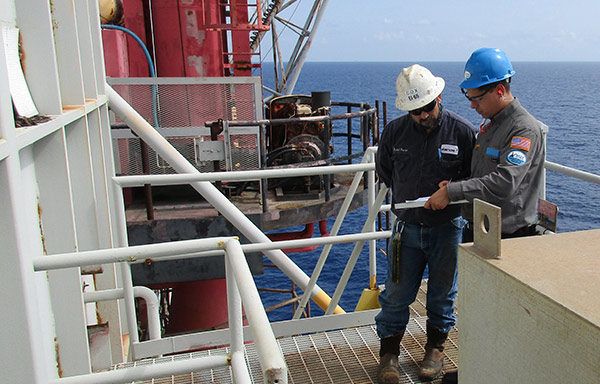BSEE safety alert addresses hazards in fired vessels

Washington — The Bureau of Safety and Environmental Enforcement has found “noticeable gaps” in safety regarding fired vessels on a few offshore oil and gas platforms in the Gulf of Mexico that “warrant attention to prevent or mitigate uncontrolled releases of hydrocarbons, toxic substances or other materials,” according to an agency safety alert issued Oct. 2.
During a quarterly risk-based inspection of fired vessels – hydrocarbon processing vessels with self-contained, natural or forced draft burners – BSEE inspectors analyzed 27 platforms supervised by 14 operators. Inspectors monitored personnel proficiency, mechanical integrity of fired vessels, maintenance of fire suppression systems, and the efficiency of operators’ safety and environmental management systems.
Although a majority of the units inspected possessed a “commendable” overall status, BSEE found that fired vessel operating procedures were not available for all personnel involved in equipment operations.
Further, various safety instructions excluded “some normal and emergency operations of fired vessels,” while most facilities “had no method to address, or failed to specify in their maintenance plans, when the fuel gas filters are changed on fired vessels,” the alert states.
In the alert, BSEE offers several recommendations:
- Review fired vessel operating procedures and verify they are accessible to all employees involved in the operations.
- Review gauge cock valves to ensure they are equipped with an automatic ball check shutoff, in accordance with API RP 14J 3.3.2.
- Develop and implement written operating procedures that define the process for sampling pH, and include the frequency of that sampling and the documentation of each inspection/sampling.
Designed to complement its National Safety Inspection Program, BSEE in March introduced risk-based inspections. Previous risk-based inspections that focused on gas releases and crane operations also produced safety alerts, the agency states.
Post a comment to this article
Safety+Health welcomes comments that promote respectful dialogue. Please stay on topic. Comments that contain personal attacks, profanity or abusive language – or those aggressively promoting products or services – will be removed. We reserve the right to determine which comments violate our comment policy. (Anonymous comments are welcome; merely skip the “name” field in the comment box. An email address is required but will not be included with your comment.)

